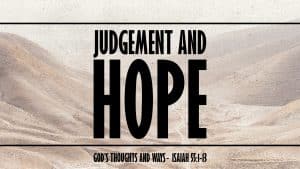12 When Jesus spoke again to the people, he said, “I am the light of the world. Whoever follows me will never walk in darkness, but will have the light of life.” 13 The Pharisees challenged him, “Here you are, appearing as your own witness; your testimony is not valid.” 14 Jesus answered, “Even if I testify on my own behalf, my testimony is valid, for I know where I came from and where I am going. But you have no idea where I come from or where I am going. 15 You judge by human standards; I pass judgment on no one. 16 But if I do judge, my decisions are true, because I am not alone. I stand with the Father, who sent me. 17 In your own Law it is written that the testimony of two witnesses is true. 18 I am one who testifies for myself; my other witness is the Father, who sent me.” 19 Then they asked him, “Where is your father?” “You do not know me or my Father,” Jesus replied. “If you knew me, you would know my Father also.” 20 He spoke these words while teaching in the temple courts near the place where the offerings were put. Yet no one seized him, because his hour had not yet come.
In these verses Jesus makes a contrast between the standard of judgement of his opponents and that of God. Judgement by human standards, literally “flesh”, is sinful judgement. That is inevitably both harsh and indulgent. It is deeply biased against God and ruthless within its own standards, mercy is not a part of it. On the other hand, Jesus hasn’t come to judge but to save the ones who deserve to be condemned; although he says that if he was to judge he would be correct. He knows human hearts and that we all deserve to be condemned but chose to be condemned as a substitute for his people
Think about how comforting it is today to know that God is all too aware of how much you deserve to be condemned. Yet the Father sent the Son who willing offered himself to be condemned for you. He truly is the light of the world. In the darkness of our sin he has shone his light to eradicate that darkness.


